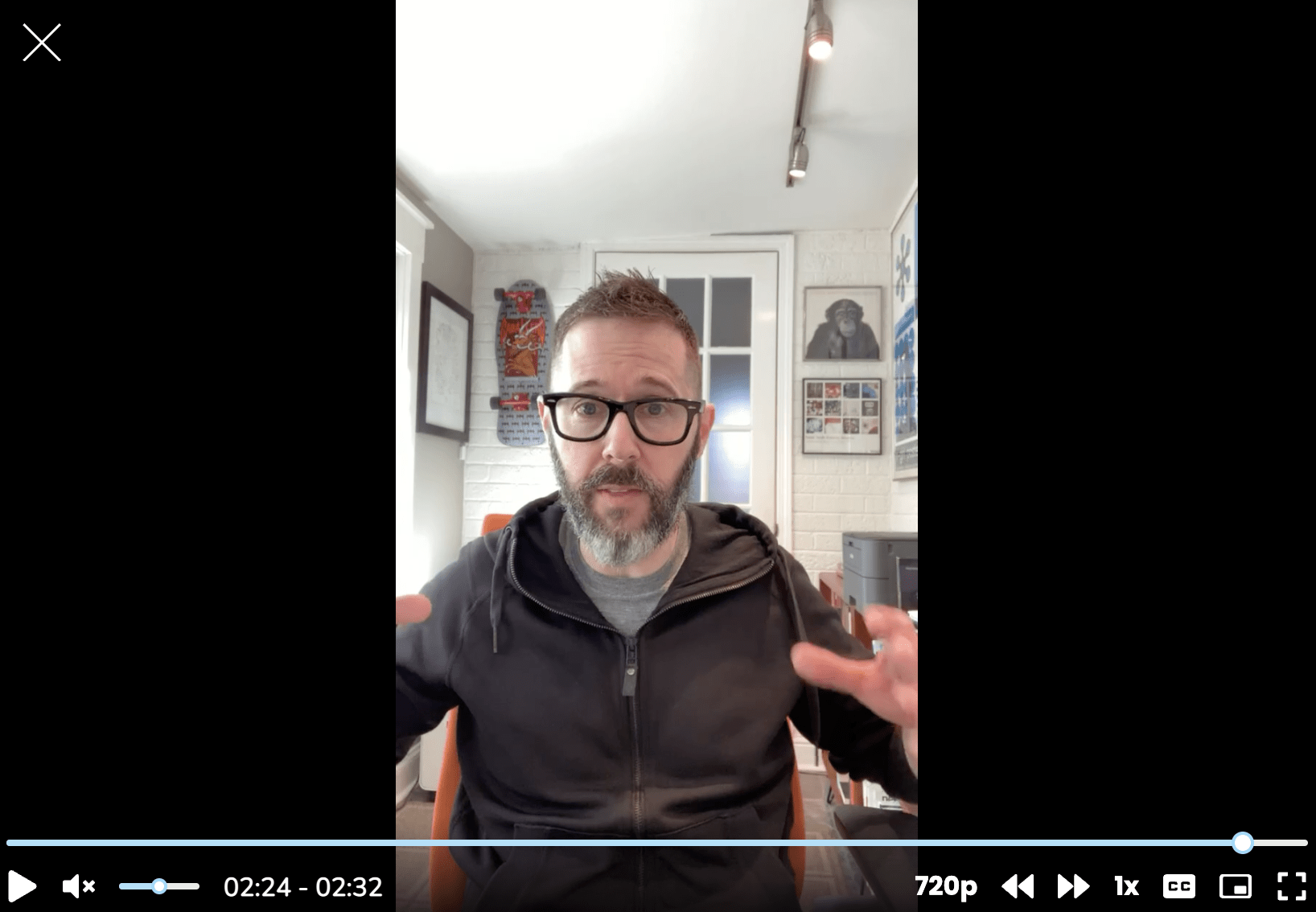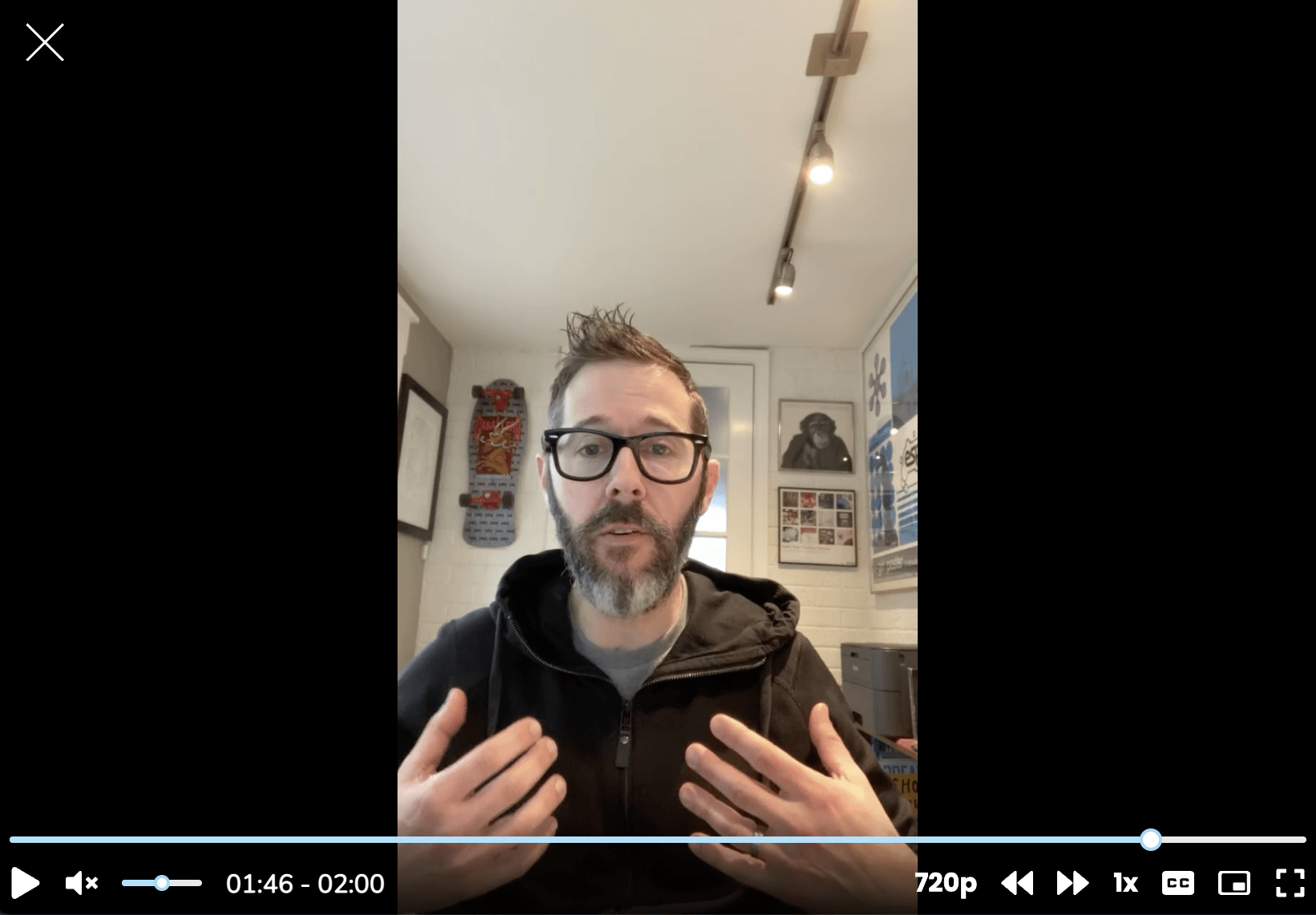Research Practicing for 19 February 2023
Hello!
This is the latest Research Practicing newsletter by Gregg Bernstein. Thank you for subscribing.
I love a good prompt. If there’s anything you’d like to see me cover in a future dispatch, get in touch!
Now here's what's hot off the presses this week at gregg.io:
- Moving from journalism to user research: An expansion on the advice I gave to the Learners community, including a portfolio starter template
- Dealing with disrespectful research participants: Similar to above, I added more detail to a video created for the Learners community
- One great link: Dave Hora on the past, present, and future of user research
Read on…
Moving from journalism to user research
For Learners, I answered the question, “As a journalist, how do I leverage my background to break into user research?”
You can watch the original video here.
 Me talking about transitioning from journalism to user research (screenshot only—click here to watch!)
Me talking about transitioning from journalism to user research (screenshot only—click here to watch!)
I’ve worked in media with journalists pretty steadily since 2016, and there is a lot of overlap between journalism and user research. It’s a topic I’ve covered before on the Vox Product blog, but here I’ll answer it with an eye toward getting a job.
Journalists identify stories worthy of the public interest. They conduct desk research and identify the right folks with whom to conduct primary research. And they analyze their findings with an eye toward educating, informing, or swaying public opinion.
User researchers, instead of working in the general public’s interest, advocate for change on behalf of their users and toward the goals of their organizations. And though the exact methods differ, the mindset is similar: be curious, do your homework, talk to the right people, analyze what you’ve learned, and present it back.
And that takes us back to the question at hand: how do I leverage my background to break into user research? My advice is to explicitly call out the similar approaches between journalism and user research in any cover letters or resumés you send out, and any job interviews you go on.
That extends to a portfolio, too. Revisit your publishing experience and see if you can present that same work as a user researcher would. Here’s what that might look like:
For this story, the question I was trying to answer was ____.
My methods for answering that question were ____.
For my secondary or desk research, I looked at ____.
The people I interviewed for this story were ____.
From my collected data, I concluded ____.
After my story was published, ____ happened.
If I had to do it over again, I would have changed ____.
That sounds like a user research project to me!
The curiosity inherent to journalism will get you most of the way there; put some time into making the similarities as clear as day to any hiring manager and you should be well-positioned to break into this field.
Good luck!
Dealing with disrespectful research participants
For Learners, I gave my thoughts on dealing with very aggressive or disrespectful research participants.
You can watch the original video here.
 Me talking about disrespectful participants (screenshot only—click here to watch!)
Me talking about disrespectful participants (screenshot only—click here to watch!)
Off the bat, encountering an aggressive or disrespectful person is no doubt uncomfortable. I have some tips on how to avoid that situation, and what to do if it happens to you.
First, after a bad experience with a participant, my colleagues Claire and Anna smartly took it upon themselves to add language to our participant consent form* that lays out that both participants and researchers are empowered to end the session at any time in the face of abusive or intolerant behavior. This way we establish the ground rules going in: abuse and intolerance are nonstarters. If a participant crosses that line, end the session.
*As with any agreements between an organization and a participant, run any changes you want to make by your legal team!
However, as with all things research, there’s nuance to unpack here. Is the aggression or disrespect about you, or is it about the topic you’re discussing? If we’re talking to someone who encountered a hardship, they will have strong feelings.
If we’re interviewing someone who feels angry about changes to a product we work on because we made their job harder, they are well within their rights to be pissed off. I think that’s within the bounds of acceptable—and expected—behavior. For what it’s worth, I start every interview explaining that I’m looking for honest feedback and that the participant won’t hurt my feelings.
In sum I think the right approach here is:
- Set the expectation up front that abuse and intolerance are out of bounds, full stop.
- Be mindful that the nature of user research is to make space for feedback, and that feedback will sometimes be delivered in an emotionally charged way.
It can be fuzzy and uncomfortable, but as long as the participant is making it about their experience and how it made them feel, it’s not about you. If they venture into personal attacks or abusive or intolerant language, the session is over.
One great link
The Waves of Research Practice. Researcher and friend Dave Hora examines the origins of user research, sums up the current state of affairs, and shares what he sees on the horizon for our field. It’s a thoughtful and thought-provoking piece.
Onward,
Gregg
- Want to offer feedback or a suggestion for a future issue? Hit reply or get in touch here
- Access all my content on my website, gregg.io
- Buy my book, Research Practice
